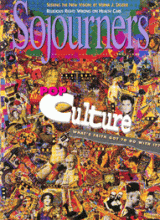Mozart's Enlightenment was for men; women minded the children and washed the socks. That offends and angers me, but it troubles me too. The vaunted Rights of Man set into motion economic and technological forces of new violence, poverty, degradation, and displacement. Mozart foresaw the liberated man as potential outlaw. What outlawry need we think about as we pursue the liberation of women? What, indeed, is the law of human societies? Where does it come from?
Relegated to domesticity, women have figured out some things the world needs, "women's ways of knowing," Mary Belenky calls them. Will these ways, derived from our traditional role of bearing and nurturing children, survive the world men have made? While we have struggled for equality, several generations of children have been virtually abandoned. No provision has been made for them, private or public. I am pulled toward equality, then back toward the need to care for people, especially children. I don't know where I stand but have to take the next step anyway.
If Mozart's musical sister, Nannerl, had been encouraged as he was, might she have wondered in her music what the Rights of Woman portended? We women, often because we have had no choice, have cared for the young and the old, the ailing and the weak through the Enlightenment, the Industrial Revolution, the Cold War, and other inventions of the male mind besotted with apparent autonomy. Women have been oppressed, no doubt about it, but oppression has bred strength as well as loss.
Ours is a deep revolution, reaching into privacies and identity, causing crazed and hateful counter-revolution. I suspect its conclusion, like that of other enlightenments, is neither certain nor foregone.
Read the Full Article

